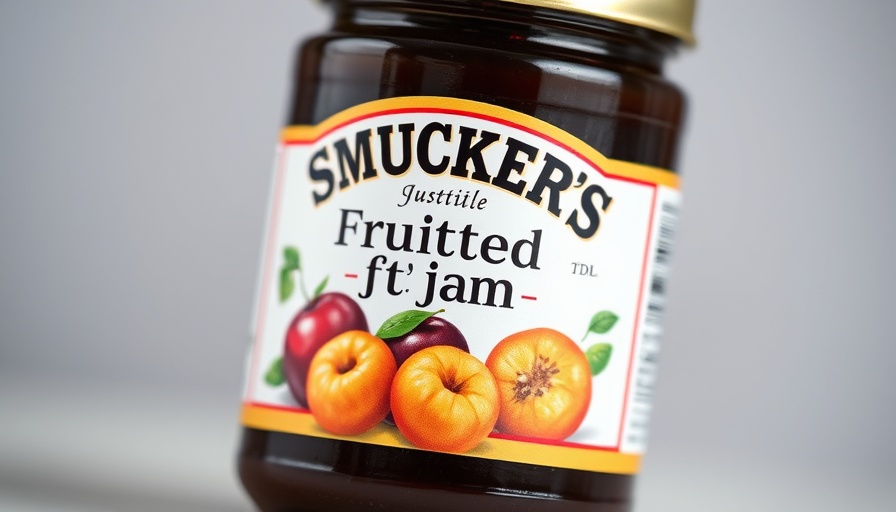
J.M. Smucker's Bold Move: A Shift Towards Natural Ingredients
In a significant industry shift, J.M. Smucker Co., renowned for its jams and spreads, announced plans to eliminate artificial colors from its product lineup by the end of 2027. This move follows a growing trend among food manufacturers responding to consumer demands for cleaner, more natural ingredients. The company is not just stopping at consumer goods; they aim to remove synthetic dyes from products sold to K-12 schools by the 2026-2027 school year.
Consumer Trends Driving Change
This decision is aligned with an increasing public awareness and concern regarding food additives, especially artificial colors. The FDA has heightened scrutiny of food dyes, triggering a shift in consumer sentiment. Research indicates that nearly 90% of consumers prefer products without artificial colors. This change mirrors ongoing trends in health and nutrition sectors which emphasize clean eating and transparency in food production.
Industry-Wide Transition: Who's Following Smucker's Lead?
J.M. Smucker's announcement is part of a larger movement within the food industry. Competitors like Nestle, Kraft Heinz, and General Mills are also phasing out synthetic dyes, spurred by both regulatory pressure and consumer advocacy. Earlier this month, Kraft Heinz revealed plans to remove artificial dyes from popular products like Jell-O and Kool-Aid, highlighting an industry-wide pivot towards more natural ingredients. This collective movement not only responds to consumer preferences but also minimizes potential health risks associated with synthetic additives.
The Health Implications of Artificial Colorants
The health implications linked to artificial coloring agents have come under scrutiny over the years. For instance, the FDA has banned certain dyes, like Red 3, due to their potential carcinogenic effects. Parents and guardians, in particular, have shown increasing concerns about the impact of these additives on children's health. The removal of these colorants from widely consumed products signifies a larger trend towards prioritizing consumer health amidst evolving regulatory standards.
Challenges Ahead: Corporations and Product Reformulation
While J.M. Smucker is moving forward with its initiative, the transition is not without challenges. Manufacturing products without artificial colors often requires reformulation, which can involve significant investment and logistical hurdles. Furthermore, companies must find natural alternatives that do not compromise on flavor or shelf life, which can be a complex science. For instance, replacing the vibrant hues typically derived from synthetic dyes poses a challenge, as companies want their products to remain visually appealing.
What This Means for Business Professionals
For CEOs and marketing managers, this shift towards natural ingredients opens up new opportunities. Brands that embrace transparency and respond to consumer demands can enhance their competitive edge. But they also face potential hurdles in adapting marketing strategies to communicate these changes effectively. Building trust with consumers hinges on brands' accountability in the reformulation process and their ability to convey new product benefits convincingly.
Looking Ahead: The Future of Food Production
As J.M. Smucker leads the way, the future of food production appears increasingly focused on transparency and health. This trend not only reflects shifting consumer preferences but anticipates stricter regulations as governments act to protect public health. Companies can leverage this momentum by considering innovative approaches to product formulation and by prioritizing consumer education about the benefits of choosing natural over synthetic.
Taking cues from companies at the forefront of change, businesses should remain adaptable and proactive in reshaping their product lines. It is through these efforts that the industry can continue to evolve, eventually paving the way for a healthier population.
For professionals navigating these changes, embracing the movement towards clean ingredients will not only align their brands with consumer preferences but may ultimately lead to growth and increased brand loyalty. As the landscape of food production transforms, business leaders are encouraged to stay informed, agile, and ready to engage with their customers like never before.
 Add Row
Add Row  Add
Add 




Write A Comment